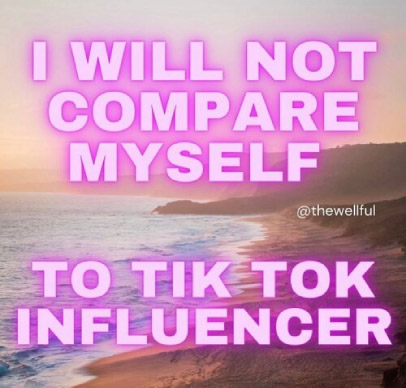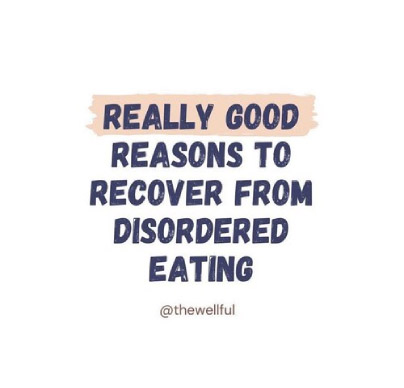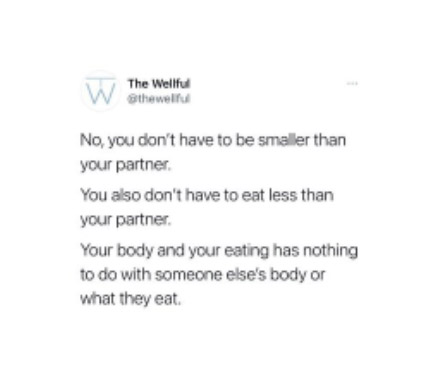
When I graduated from college last year, I counted and realized that I’ve had over 10 different internship experiences – in less than 4 years. The first of which, led to a full 180 shift and changed my major, college that I graduated from and post-grad plans. So yes, I place a lot of value on internships and on the opportunities they offer.
Like many of my peers, going into college I wasn’t quite sure what I wanted to do but mostly gravitated towards business and marketing. As a freshman, I joined a few clubs and sports teams and started writing for an online food publication, Spoon University. At the time, Spoon was still small (not the Food Network giant it is today) and it had about 4 jobs posted on it, one of them being an internship in NYC with startup green smoothie company, Green Mustache. I applied, wrote my first cover letter, and had my first ever interview, over Skype. I was offered the position and accepted. The catch? I was going to college in Upstate New York, a few hours from my hometown and the internship was in NYC and unpaid. My parents weren’t sold on the idea of me moving to NYC by myself, my friends thought it was a little “extra” to start interning after my freshman year but ultimately, it was the best decision I’ve ever made. 4 years and 10 internships later, I’ve learned a thing or two about bringing value as an intern – paid or not – and more than a few tips for making the most of your experiences.
A few disclaimers: I am in the field of nutrition media and communications so most of my internships have been with startups in the food and beverage space, mostly doing marketing, branding, media work and counseling/patient care. So while my intern experiences are applicable and relatable to most internship experiences, some aspects may vary from one field or internship to another. Here are some tips for getting your foot in the door, making the most of your experiences and figuring out where you want to be next.
10 Lessons from 10 Internships
1. It’s Not Posted…Still Ask
Only a handful of my internship experiences have been from posted positions. The rest have been through cold emails, loose connections or, just asking. Like I said, that first internship was posted on an online magazine. My next opportunity came when I connected with two dietetic interns from New York Presbyterian Hospital who were tabling at an internship fair and I asked them if they knew of any volunteer positions available for the summer. I stayed in touch with them both and when meeting for coffee about a year later, I mentioned that I liked to write and she connected me with her previous employer who was looking for a freelance writer – which became a multi-faceted assistant and brand role. A sustained relationship and casual chat turned into another work opportunity. Other places I’ve found internships and work opportunities that weren’t listed on a traditional job or internship board: cold emailing someone with a PR/event business and offering to work for free (x1) chatting with speakers after they presented at conferences and asking if they needed help (x2), asking family if they had any connections I could take advantage of (x1), sending a resume to an opportunity that came through my university email (x1), And my last internship – one that requires a hefty application process the dietetic internship – I am positive I got through the diversity and experiences of my other 10 internships.
-
If you follow any sort of business or media content, you’ve probably seen or heard of the serial entrepreneur and leader in digital media, Gary Vaynerchuck (@garyvee, @teamgaryvee). He’s known for shooting straight and for advocating that if you want to learn from the best, offer to work for the best, for free. Most of his closest team is made up of people who took him up on that.

2. Be Willing to Put in the Work
Depending on what type of company you intern for, you may be getting your hands dirty, or you may be filling out an excel sheet and organizing the office fridge. The important part is that you’re willing to put in the work to be of value – even if it’s not what you initially expected. Sometimes I’ve been involved in a new campaign or heading up research for a new project and it’s been the main project that the team is working on. It’s all we’re talking about and it’s exciting. There have been other times where the main project that’s being talked about is months away and I’m working on a spreadsheet of local restaurant phone numbers for a round up. But putting just as much work into either type of project is a lesson in patience and loving the process. Putting it in perspective and seeing how all the pieces and roles fit together and how your responsibilities or role supports the team or company as a whole. We’ve all worked alongside other interns – or employees – who have complained their way through a role that wasn’t exciting to them, and it’s just about one of the most miserable things you can imagine. Don’t do that.
3. Connect
You might have heard it’s not about what you know but who you know. And yes, what and who you can do are both key to your success, but office culture and connections are also an important part of work environments. You don’t want to just act a certain way for a future connection, people can normally see through that. But it’s worth noting that your employer will assume how you do one thing is how you do everything. So if you’re representing the brand at one event and you meet a competitor and don’t give them the time of day or are rude – that will be remembered. Same goes if you say hi to everyone each morning and are always willing to help out or spend extra time working on an assignment.
4. Be Kind
One of the most impactful quotes I’ve heard is: “People may not remember exactly what you said or what you did but they’ll always remember how you made them feel”. Even if you’re not specifically in the customer service industry – any interaction with a customer, coworker, business partner or the person at the coffee shop says a lot about you and how you treat and value others.
5. Say ‘Yes’
Going back to your place on the totem pole – you’re in this for the experience and you don’t have much leverage, why would you not be willing to make the most of it? Say ‘yes’ to new opportunities, to taking on or heading up projects, or to picking up someone’s dry cleaning. A few times I said “yes” I got to: go to international food shows, represent a brand at a Panera opening, represent a brand at a Gala, lead a Kickstarter campaign, attend live shoots for news segments, contribute to the design of food packaging that is on the shelves today and create and teach a curriculum for a top hospital.
…unless you won’t be able to deliver it
Say ‘yes’ until you know you need to say ‘no’. Saying no is one of the hardest things, especially when you are the type of person who is driven and wants to do it all. The times that I’ve said no to opportunities or additional projects (1) I’ve been so grateful for, because they were times when taking on the additional work might have been “possible” but not my best and not a true reflection of my work or ability. (2) I can think of two specific times when I said no to something by explaining that while I was excited about the opportunity, I didn’t think I was in a place to be able to put my best work forward. The reaction I got was that the employer had even more respect for my self-awareness and offered that if I ever needed anything – job or reference in the future to reach out. Reminder: I had said ‘no’ to their job.

6. Passion is Your Asset
I was on an interview call the other day where one of the people interviewing me for the role said “I’m curious, how did you get here? Share some of your passion with us” I think this is where it is so easy to set yourself apart. There are some skills you need, but so many things can be taught or are exciting to learn on your own if you are passionate and excited about the role or the mission of a company. Showcase that.
7. Leverage Your Past Experiences
You don’t need a laundry list of experiences or past internships to land your dream job or internship. When I applied to my first internship my only experiences were from high school, I had some retail experience and otherwise leveraged my short time writing for a relevant magazine and ultimately my interest in the field and willingness to learn and grow with the company. Experience in hospitality is always seen as an asset because it show that you can handle a high-demand role, customer service and essentially choas – some employers who specifically favor that type of experience – even if the role is for a seemingly unrelated, like a talent agent or project manager.
8. Be the Co-worker or Employee You Would Want to Work With
I remember having this realization when I was helping to train and on-board other interns: “If I were the founder, how would I want my interns to represent the brand?” While this didn’t drastically change how I was already representing the brand – and as Gary Vaynerchuk always makes a point to say, nobody is going to work as hard or be as passionate about the company as the founder – but I wanted to at least be up there in my own way. Every company I’ve worked for, I have become incredibly passionate about, part of that is my personality but part of it is that I have found experiences that align so well with my interests that it’s easy for me to drink the kool aid. When you are doing work you love and are open to the experience, the work is more enjoyable and you’re more pleasant to be around.
9. Get Used to Hearing ‘No”
Being an intern, you’re in a unique spot. You’re not quite a permanent office fixture, but you’re likely there long enough to understand the office culture, the company’s mission and offer a fresh perspective on projects and problems.Most employers know that offering the internship is often more for you than it is for the company – it normally takes more time from them than you can provide as an intern. That’s why you want to offer as much value as possible – but also connect with others and use it as an opportunity to learn and try out different roles and company styles. Depending on where you intern, or work, the acceptance around new ideas and your freedom to contribute may be drastically different. The majority of my experience interning has been for startup companies and many of the ideas I’ve come up with have been encouraged and supported. But even more have been flat out rejected. I think that’s a good thing. Something I’ve loved about having so many internships and working with such a variety of people and hearing ‘no’ doesn’t mean you’re an awful person with 0 valuable ideas, but they could use some improvement.
10. Ask for Feedback
And hopefully not just the “you’re great” kind. Getting true constructive criticism and specific strengths and areas to improve in is so valuable. If you’re lucky enough to work for or with someone who takes the time to pay attention and give you specific, valid feedback, pay attention. As nice as it is to hear that ‘you’re doing a great job’ it’s much harder to find someone who will be honest and objective. That being said, use your own self-awareness and judgement to reality-check and filter through feedback at either extreme.
What’s been your most valuable internship experience or lesson learned?
This article was originally published on Linkedin on 10/10/2018. See original.










